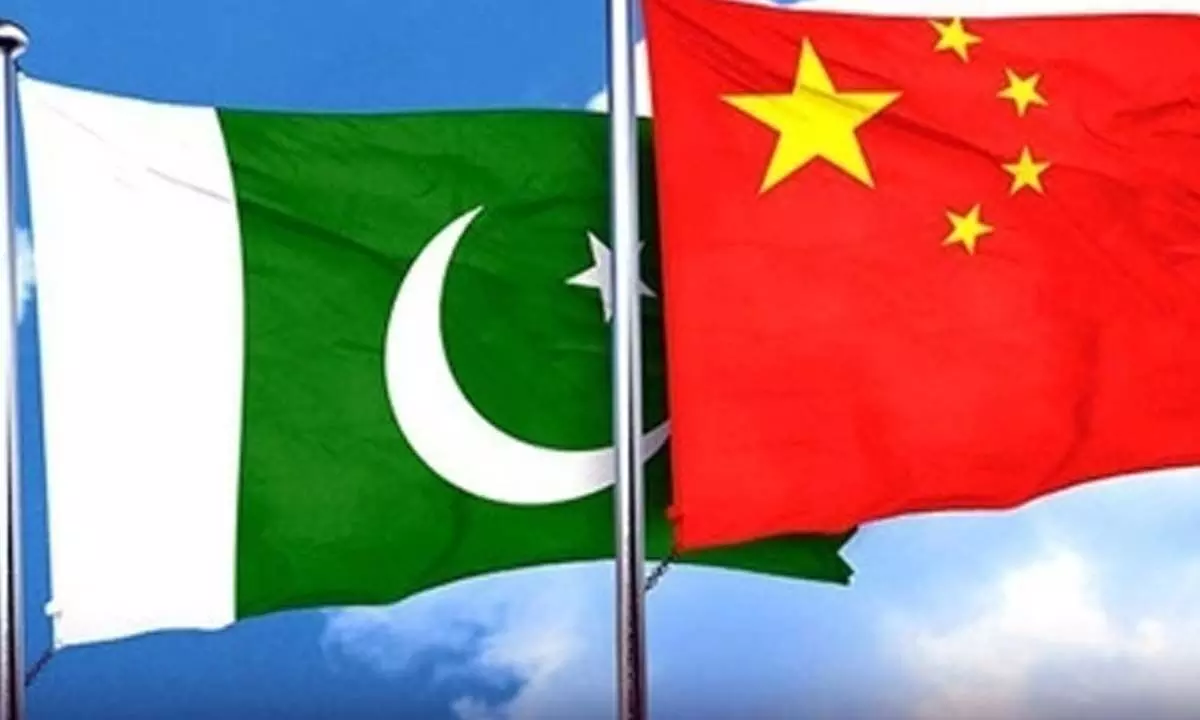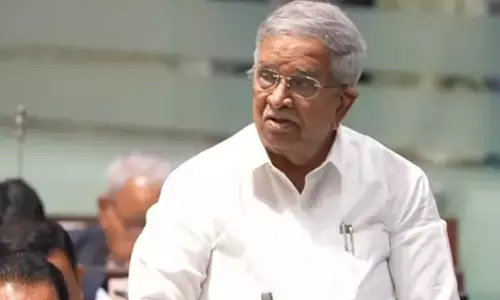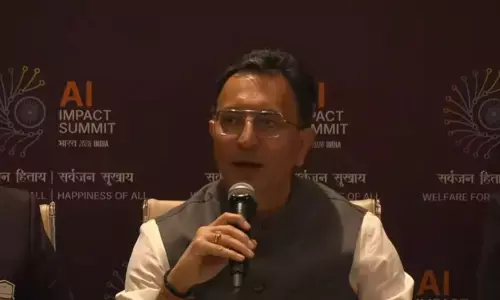Brothers in oppression: Pakistan learning tricks of rights violations from China
Share :

Pakistan is once again engulfed in a summer of protests, facing significant social upheaval with ongoing anti-state demonstrations in Balochistan and Khyber-Pakhtunkhwa (KPK).
New Delhi: Pakistan is once again engulfed in a summer of protests, facing significant social upheaval with ongoing anti-state demonstrations in Balochistan and Khyber-Pakhtunkhwa (KPK).
Although protests in Pakistan-Occupied Jammu and Kashmir (POJK), including Gilgit Baltistan, may have momentarily waned, the state's response to the current unrest combines longstanding repressive tactics with new approaches.
Islamabad's strategies seem heavily influenced by its subservient and dependent relationship with Beijing. The Pakistani security agencies have adopted new repressive methods to suppress domestic dissent, especially in Balochistan and KPK, areas where Pakistan has upheld a quasi-imperial political structure since the mid-20th century, following the British colonial partition of the Indian subcontinent.
Pakistan's tactics closely resemble China's longstanding approach to suppressing social unrest, political resistance, and minority groups. Beijing is a symbol of extending authoritarianism into the digital realm through mechanisms such as the 'Great Firewall' and the 'Great Digital Wall of China'.
The Chinese government has created one of the most restrictive media environments worldwide, implementing stringent censorship "to control information in the news, online, and on social media".
Additionally, it has established numerous concentration camps in Xinjiang for the ethno-religious Uyghur Muslim minority. These camps, termed "re-education camps" by the state, hold millions of Uyghurs.
The Chinese government also compels Uyghur women to marry Han Chinese men as part of its effort to suppress this ethnically and religiously distinct minority, which it views as a challenge to its homogenization agenda.
Similarly, cultural assimilation tactics have been employed against Tibetan Buddhists to integrate them into the dominant Han Chinese culture.
Drawing from China's methods to suppress minorities and stifle political dissent, Pakistan's military-dominated establishment, led by Shehbaz Sharif's political executive, has recently sanctioned the creation of a national digital firewall.
Although the installation process began earlier, the Pakistani government officially acknowledged it on June 30, framing it as essential for filtering "propaganda and unwanted content" and countering "digital terrorism".
This firewall, sourced from China, effectively grants the Pakistani state the authority to regulate social media platforms and restrict citizen access to crucial socio-political sites like Facebook, Instagram, YouTube, and TikTok.
It also allows government agencies to trace individual IP addresses, which Pakistani officials label as primary sources of ongoing "anti-state propaganda" targetting the country both within and beyond its borders.
In addition to implementing a nationwide digital firewall, the Pakistani government has also pledged to regulate the use of virtual private networks (VPNs) within the country. VPNs enable users to circumvent local censorship by masking their locations to access blocked websites and apps.
The new policy will require users to disclose their VPN usage to the Pakistan Telecom Authority (PTA), effectively defeating the purpose of these tools. Notably, Pakistan banned Twitter (now X) on February 17, 2024, and VPNs have been the sole method for Pakistani users to access the site and for human rights and opposition activists to report ongoing repression from Islamabad to Parachinar to Gwadar.
While the installation of this digital firewall represents the latest addition to Pakistan's arsenal of information control tools, the state has a longstanding record of media censorship. Journalists who challenge the official narrative face daily harassment, with many being abducted or killed each year.
In the past four months alone, eight journalists have been murdered in Pakistan for their political work, with government agencies often identified as the primary suspects.
For example, prominent journalist Imran Riaz Khan was missing for nearly four months last year after criticising state institutions during the May 9 anti-state protests.
Similarly, Arshad Sharif, who fled Pakistan due to his journalism, was killed in Kenya in 2023, allegedly under the orders of Pakistani intelligence agencies.
Pakistan's ranking in the 2024 press freedom index has fallen to 152nd, down two places from 150th in 2023, edging closer to China, which is ranked 172nd. It seems Pakistan is striving to surpass even China in its quest to dominate the country's information landscape, aiming to create a dystopian authoritarian state where political repression, ethnic discrimination, and human rights abuses remain concealed from the global view.
Beyond its efforts to control the information landscape, Pakistan has reportedly taken another step by building a network of detention centers across Balochistan and KPK, as uncovered in a recent media investigation.
According to a report by Khaama Press News Agency, Pakistan's military establishment has greenlit the creation of new detention centres modeled after notorious sites such as Guantanamo Bay and Chinese concentration camps.
These new facilities will complement the existing but undisclosed internment centers operated by Pakistani intelligence agencies, particularly the ISI, throughout KPK and Balochistan. This move comes despite a 2019 Peshawar High Court ruling that declared these types of facilities unconstitutional.
These new measures take on added significance amid renewed protests in both provinces, highlighting Pakistan's troubling history of severe human rights abuses, including enforced disappearances, extrajudicial killings, and sexual violence in Balochistan and the tribal regions of Waziristan in Khyber Pakhtunkhwa.
The introduction of these Chinese-inspired detention centers worsens the already dire situation regarding enforced disappearances in Balochistan, where thousands of Baloch men have vanished and remain unaccounted for after being abducted by state agencies over the years.
Amidst the recent wave of protests in Balochistan, specifically during the Baloch National Gathering on July 28 organised by the Baloch Yakjehti Committee (BYC) in Gwadar, the Pakistan Army has reportedly killed two Baloch protesters, injured dozens more, and arrested over a thousand individuals.
Additionally, Pakistani authorities have abducted Sammi Deen Baloch and several other protest organisers, who remain unaccounted for according to local media. Both the Balochistan provincial government and Pakistan's federal government have claimed ignorance regarding Sammi Deen Baloch's whereabouts, with fears that he may be held in one of the new Chinese-inspired, Guantanamo-style internment camps.
Sammi Baloch, a key figure in the BYC protest movement alongside Dr. Mahrang Baloch, has been targetted by the state. Local media reports indicate that Dr. Mahrang Baloch has received threats from the state, with orders to eliminate her for mobilising Baloch people in their fight against ongoing human rights violations, including enforced disappearances.
Despite this, the effects of media censorship and social media control are becoming increasingly apparent as the Pakistani state clamps down on information from Balochistan amidst the widespread violence perpetrated by the Pakistan Army.
This scenario highlights how Pakistan is adopting the repressive tactics of the Chinese state, using them to target Baloch and Pashtun communities, and rendering their struggle invisible while continuing to suppress their calls for an end to ongoing state abuses.








